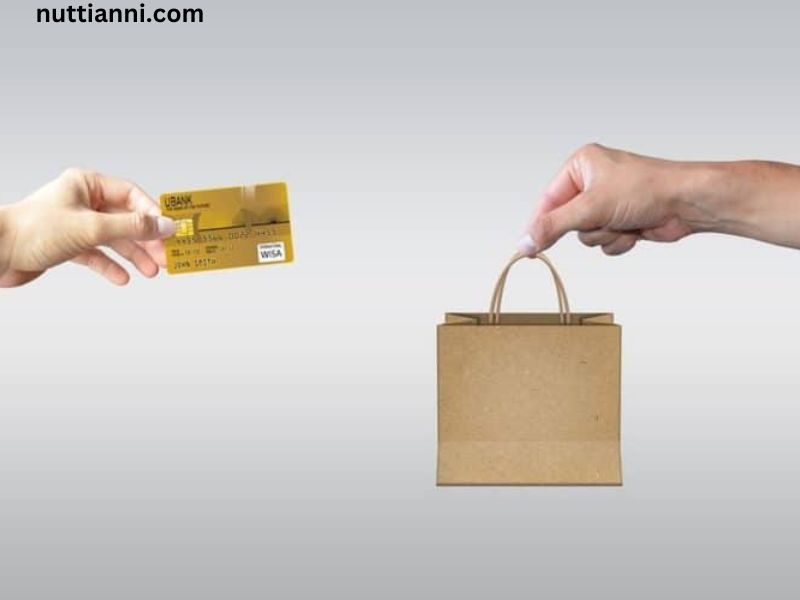Credit cards are a ubiquitous financial tool, offering a convenient means to make purchases and manage cash flow. For many, the ability to use credit cards is a financial asset, providing benefits that extend beyond simple transactions. From earning rewards to building credit history, the positive aspects of credit card use are well-documented. However, understanding when and why a credit card might not be the best choice is equally important. In this article, we will explore the various advantages of credit card use and identify one critical negative aspect to avoid.
The Positive Aspects of Credit Card Use
- Building Credit History
One of the most significant benefits of using a credit card responsibly is its impact on your credit history and score. Regularly using a credit card and making timely payments demonstrates financial responsibility to credit bureaus. This positive behavior helps build and maintain a good credit score, which can be advantageous for future financial endeavors such as applying for loans or mortgages. A strong credit score often translates to better interest rates and more favorable terms on various financial products.
- Rewards and Cashback
Many credit cards offer rewards programs, including cashback, points, or travel miles. These rewards can be a substantial benefit, especially if you use your credit card for regular purchases. Cashback cards, for instance, provide a percentage of your spending back as a credit on your statement. Rewards programs can be a smart way to earn additional value from your everyday spending, but it’s crucial to understand the terms and conditions to maximize the benefits.
- Purchase Protection
Credit cards often come with built-in purchase protection features. This might include extended warranties, fraud protection, and the ability to dispute charges if necessary. For example, many credit cards offer extended warranties on purchases, which can be a significant advantage when buying expensive items. Additionally, fraud protection ensures that you are not held liable for unauthorized transactions, adding a layer of security to your purchases.
- Emergency Funds
Credit cards can serve as a valuable financial safety net during emergencies. If unexpected expenses arise, having a credit card can provide immediate access to funds when you might not have enough cash on hand. This can be particularly useful in situations where immediate payment is necessary, such as medical emergencies or urgent home repairs. However, it is important to use this option judiciously and not rely on credit cards for routine expenses.
- Flexibility and Convenience
The convenience of credit cards cannot be overstated. They provide a flexible payment option that is accepted at a wide range of merchants, both online and offline. Credit cards also offer various payment options, such as paying the full balance or making minimum payments. This flexibility can be beneficial for managing cash flow and accommodating changes in financial circumstances.
A Negative Aspect of Using Credit Cards for Financing Purchases
While credit cards offer numerous advantages, it is essential to recognize the potential pitfalls. One critical negative aspect to be aware of is:
High-Interest Rates and Accumulating Debt
Using credit cards to finance purchases can lead to high-interest rates and accumulating debt if not managed properly. Credit cards often come with higher interest rates compared to other forms of credit, such as personal loans or mortgages. If you carry a balance from month to month, the interest charges can quickly add up, making it challenging to pay off your debt. This is particularly problematic when credit cards are used to finance non-essential or discretionary purchases.
Here’s why this is a significant concern:
- High-Interest Rates
Credit cards typically have higher interest rates compared to other credit products. The annual percentage rate (APR) on credit cards can range from 15% to 25% or more, depending on your credit profile and the card issuer. If you carry a balance on your credit card, the interest charges can significantly increase the total cost of your purchases. Over time, this can result in substantial financial strain and difficulty in managing your debt.
- Compounding Interest
Credit card interest is compounded, meaning that you are charged interest not only on your outstanding balance but also on the interest that has already accrued. This compounding effect can exacerbate your debt, making it harder to pay off your balance. For example, if you carry a $1,000 balance at an 18% APR and only make minimum payments, it could take years to pay off the debt, and you may end up paying significantly more in interest than the original amount borrowed.
- Impact on Credit Score
Carrying high balances and making only minimum payments can negatively impact your credit score. A high credit utilization ratio, which is the ratio of your credit card balances to your credit limits, can lower your credit score. Additionally, missed or late payments can further damage your credit history. A lower credit score can affect your ability to qualify for loans and credit products in the future and may result in higher interest rates.
- Encouragement of Overspending
Credit cards can sometimes encourage overspending due to their ease of use and the ability to defer payments. This can lead to financial difficulties if you do not have a clear budget and spending plan. The temptation to make purchases beyond your means can result in accumulating debt that becomes challenging to manage. It is crucial to use credit cards responsibly and ensure that your spending aligns with your financial goals and budget.
- Minimum Payments Trap
Credit cards often have the option to make minimum payments, which can be appealing in the short term. However, consistently making only minimum payments can extend the time it takes to pay off your balance and increase the amount of interest you pay over time. While minimum payments may be manageable in the short term, they can lead to a prolonged debt cycle and financial strain in the long run.
Conclusion
Credit cards offer a range of benefits, including the ability to build credit history, earn rewards, and provide financial flexibility. They can be a valuable tool for managing expenses and handling emergencies. However, it is essential to recognize that using credit cards to finance purchases can also have significant drawbacks, particularly if it leads to high-interest debt and financial difficulties.
The critical negative aspect of using credit cards for financing purchases is the potential for accumulating debt due to high-interest rates and compounding interest. This can result in financial strain, negatively impact your credit score, and lead to long-term debt problems. To avoid these pitfalls, it is important to use credit cards responsibly, pay off balances in full whenever possible, and be mindful of your spending habits.
By understanding both the positive and negative aspects of credit card use, you can make informed financial decisions and utilize credit cards as a beneficial tool rather than a source of financial burden.









